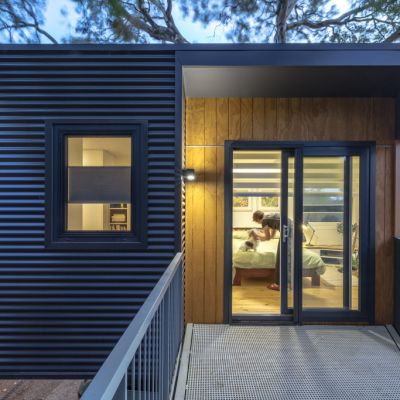9 questions you may have if you're renting, buying or own an apartment

Do you find apartment living, with all its rules and regulations confusing?
There’s good reason for that: they can be completely baffling. And what’s more, they can vary wildly depending on whether you’re an owner or a tenant, and which state you happen to call home.
Across Australia, many of the general principles are the same, but they tend to differ in the detail. But don’t despair! We’re here to answer some of the tricky questions that have no doubt crossed your mind.
If you’re looking to buy, or own an apartment

1. What exactly do I own when I buy into an apartment building/complex?
Technically, you own the air inside your apartment, from the paint on the walls and ceiling and carpet or tiles on the floor. You also own internal walls that aren’t between your lot and another lot or common property. Wiring and water pipes that service only your apartment are yours unless they are in a common property wall. You have permission to share the use of common property, but you don’t own it.
2. How can I determine if the apartment is a quality purchase?
You want a detailed strata report – not just the standard stuff some real estate agents hand out about the accounts You need an in-depth report that has recent meeting minutes to get a sense of problems that have arisen in the past (and hopefully resolved) and others that may be on the horizon.
Don’t be like the owner who bought into a “pet friendly” building only to discover that, between putting down her deposit and exchange, the block passed a no-pets by-law. A thorough search would have revealed it was being discussed long before she bid for the place.
In newer or off-the-plan purchases, try to find the track record of the developer. And be wary of companies that have been set up just to build that block. If things go wrong the directors can just dissolve the company and move on to another project. The address of the building being included in the name of the company is a clue.
3. What does a strata committee do, and should I be involved?
The strata committee is like the board of directors of a company. They are elected by the owners’ corporation (all owners) and are usually delegated to make decisions on their behalf.
4. What changes – structural or cosmetic – can I make to my apartment?
In NSW there are three levels of changes you can make, each requiring a different level of permission (other states have variations on this theme but they are all fairly similar). The following applies to owners and not tenants.
5. My strata committee is slow to action issues and address problems. What can I do?
If you’re renting

The first thing to understand is that while ownership of a strata lot gives the owners certain rights, the responsibility to abide by strata law and by-laws applies across the board. So tenants are bound both by the terms of their leases and by the by-laws of the buildings in which they live.
6. What changes – structural or cosmetic – can I make to my apartment?
Tenants can’t make significant structural changes to apartments without their owners’ permission. And even then, the owners may need permission from their owners’ corporation or body corporate (see above). In some states, you can now drive a nail into a wall to hang a picture. In others, it could cost you your bond.
7. Now we’re (mostly) allowed pets, can I get a pet door installed?
Again, even if you get the owner’s permission (which you will need), if it’s an external unit front door or balcony door, it is probably common property and the owner will need owners’ corporation permission (see above).
While owners can’t unreasonably ban pets in Victoria, owner’s corporations there can. In NSW, owners can ban tenants from having pets but owners’ corporations can’t have a blanket ban on companion animals. In most other states either landlords and/or bodies corporate can ban pets.
8. Who looks after outdoor areas?
Tenants and resident owners are expected to keep the outdoor areas of their units clean and tidy although the definition of those terms and the enforcement of any such by-laws differs from scheme to scheme. A messy tenant could find that the landlord doesn’t care but the other owners do.
Common-property outdoor areas not attached to the lot should be cleaned and maintained at the owners’ corporation’s expense.
9. Am I expected to hang from my 11th-floor balcony to clean my windows?
Owners and tenants are expected to keep accessible windows clean. But all external windows in most modern apartment blocks are common property so inaccessible windows must be cleaned by a service provided by the owners’ corporation.
We recommend
We thought you might like
States
Capital Cities
Capital Cities - Rentals
Popular Areas
Allhomes
More










